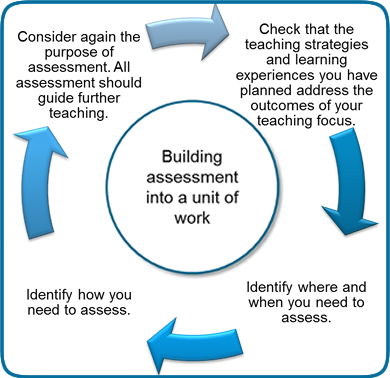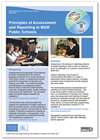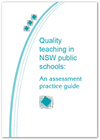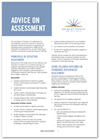How do I know when my students get there?
|
Assessment is the process of collecting evidence of student learning in order to draw an inference about an individual’s (or a group’s) current level of attainment. |
Effective and informative assessment and reporting:
-
has clear, direct links with outcomes
-
is integral to teaching and learning
-
is balanced, comprehensive and varied
-
is valid
-
is fair
-
engages the learner
-
values teacher judgement
-
is time efficient and manageable
-
recognises individual achievement and progress
-
involves a whole school approach
-
actively involves parents
-
conveys meaningful and useful information.
Principles of effective assessment (BOSTES)
|
|
Sadie Gow discusses the principles of effective feedback. |
Sadie Gow, Senior Curriculum Policy Officer
Assessment and Reporting K–12
NSW Curriculum and Learning Innovation Centre

The assessment cycle
At any stage in this cycle you can use your combined assessment data to make a point in time judgement for reporting.


